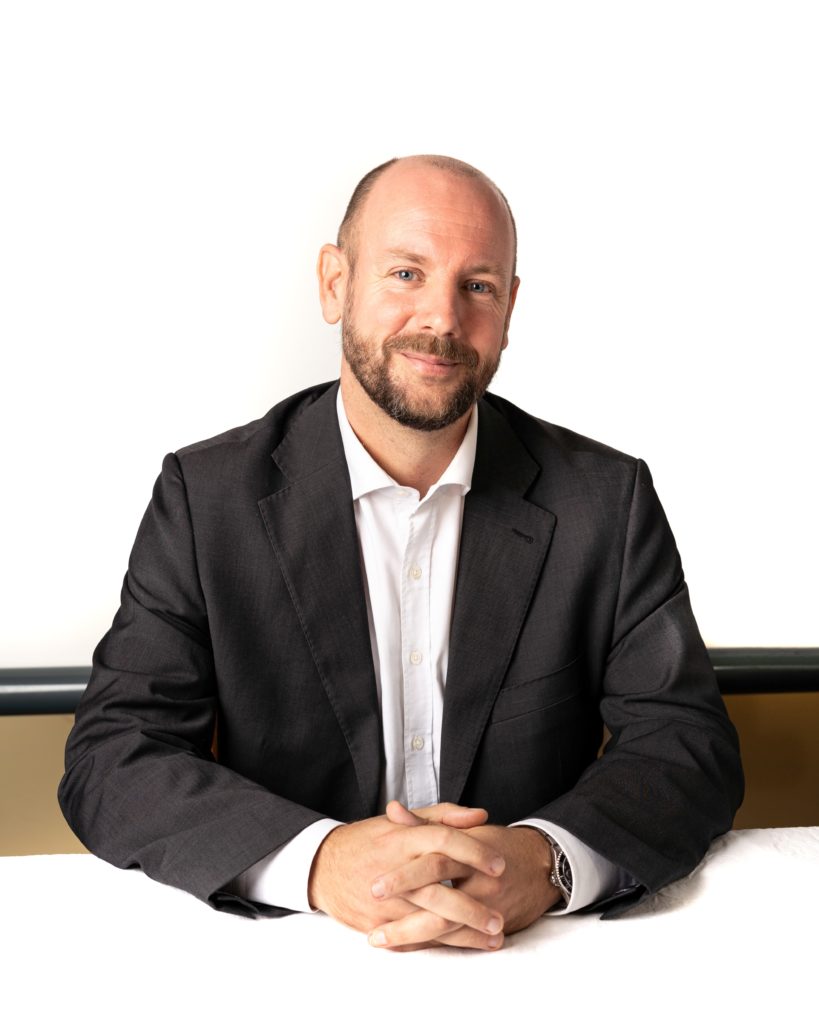An interview with Charles Lamoulen, Managing Director, Head of Portfolio Management, FIA Asset Management
Where does your interest in sustainable finance come from ?
I have always been interested in impact investment.
Historically, as a shareholder or bondholder, you would support a company’s growth directly. Today, with the development of the financial markets, unfortunately that is no longer really the case. Investors just look at short-term financial return.

My preference is to invest through microfinance, private equity to be in direct contact with a given type of business, company or investee, based on a direct interest.
With the expansion of green finance, I know that my investments can directly impact the economy while supporting themes that are aligned with my own values. And because I am far from alone in this, I am convinced that what was a trend in the past will become the norm in the future.
Could you describe the work done by FIA Asset Management and more specifically GreenEthica in sustainable finance?
FIA A.M. has now been operating as a portfolio manager in Europe for 15 years. Part of the FARAD Group, it invests essentially in B-Corp certified companies and seeks to promote shareholder values such as respect, tolerance, diversity and a long-term view. So sustainability is clearly part of our DNA.
GreenEthica is our operational unit for putting green finance into practice. It comprises discretionary portfolio management, advisory and fund management, the latter featuring our Best of SRI Balanced UCITS, which has the Luxflag ESG label, as well as impact funds.
Our investment process starts with an in-house ESG scorecard, with more than 20 qualitative and quantitative criteria, and fund manager interviews to define our investment universe. We then apply a top down asset allocation process and, to make for easy to understand impact reporting, we align each investment – and therefore the entire portfolio – with the Sustainable Development Goals (SDGs).
How are sustainable and inclusive finance linked in your opinion?
Sustainable finance is a concept linked to impact investing, a long-term view and ESG criteria. This is “finance for good”. But how good can it be if not everyone can access or benefit from it?
This is where inclusive finance comes in, to help low-income populations. It concerns not only financial products and services but also access to training and assistance with legal aspects, accounting and setting up a business.
In any case, both are important tools for implementing the SDGs.
What are your key interests in inclusive finance ?
I believe finance for good should also be “finance for all”. The financial world is a reflection of the economy. But today financial markets are in a position to influence and change not only the global economy, but also the future of the planet and the people that live on it.
The current and upcoming generations know that short-term exploitation is not for them. Individualism will also be less dominant. The time of going it alone to go fast is over; we have to go together, to go further.
My key interests relate directly to SDG 1 – no poverty, SDG 2 – zero hunger and SDG 4 – quality education. How can we accept to be part of a world where some of us pursue profit at any price while others have nothing to eat?
What are the biggest challenges facing inclusive finance today? And how could InFiNe.lu and Luxembourg help tackle them ?
A big challenge is the reluctance of financial institutions to serve low-value and unprofitable customers or those with irregular income. This is because banks see inclusion as an obligation rather than a business opportunity.
There is also a lack of awareness that prevents people from using the right products and services for their particular needs. In other words, we can use more effective, cheaper measures to improve the uptake of new bank accounts, ultimately leading to increased savings.
Financial inclusion is not a short-term goal. It is a step-by-step initiative that will develop over a period of time. We need to seize short-term opportunities and deal effectively with shortcomings in order to accelerate the inclusion process.
InFiNe.lu has a crucial role to play in terms of financial literacy and promoting inclusive finance as an opportunity.
InFiNe is the Luxembourg platform that brings together public, private and civil society actors involved in inclusive finance. The value of InFiNe lies in the wide range of expertise characterised by the diversity of its members.
With the support of

Inclusive Finance Network Luxembourg
39, rue Glesener
L-1631 Luxembourg
G.-D. de Luxembourg
Tel: +352 28 37 15 09
![]()
R.C.S. : F 9956
Legal notice
Privacy notice
Picture 1 © Pallab Seth
